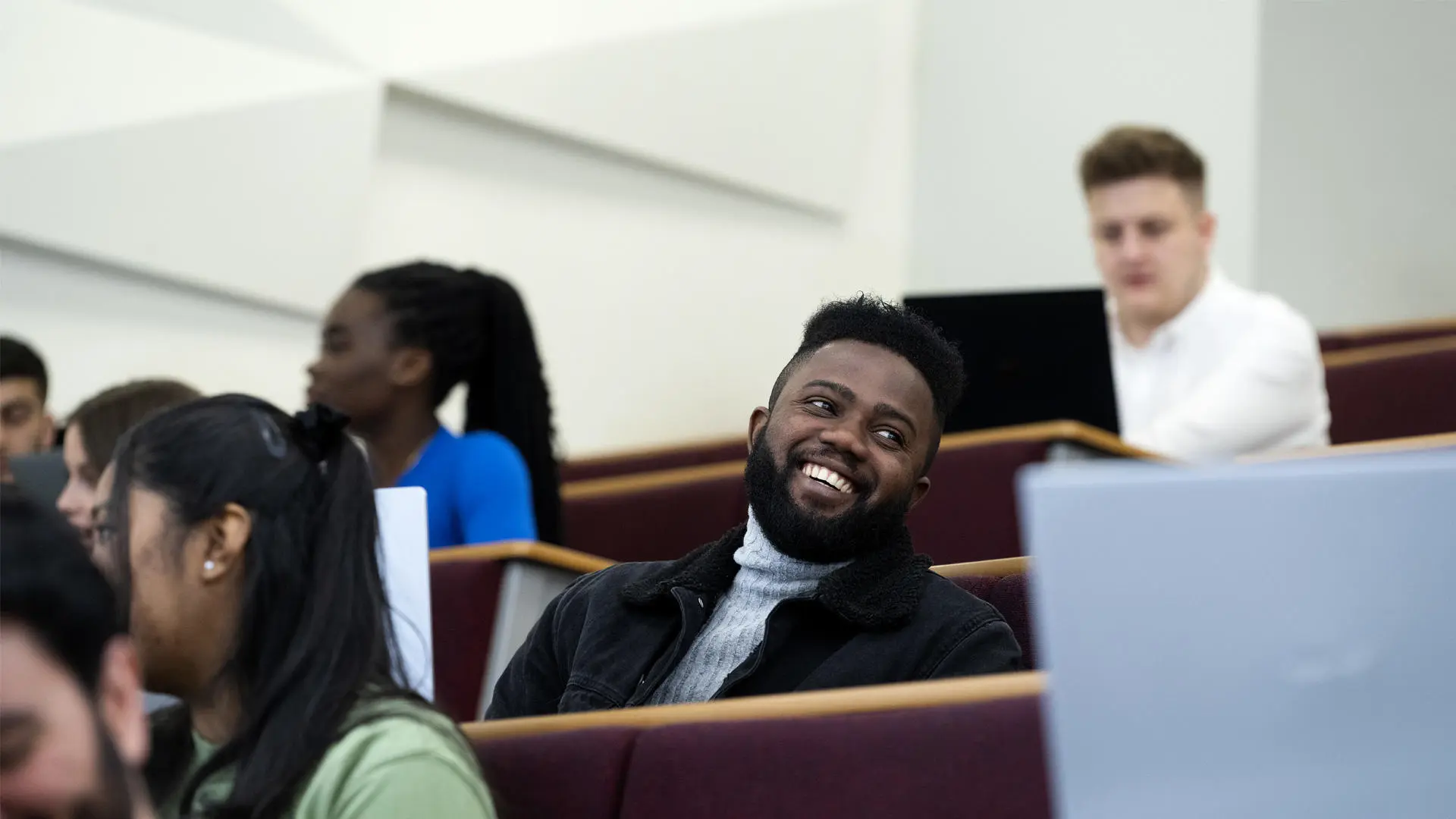League tables are only part of the picture. Research the details of each course to make an informed decision about your future. Look at the modules, facilities and the opportunities it offers for your future career.
Doing your research
Use UCAS
The UCAS website is a great starting point for comparing courses. Take a look at the entry requirements for each one.
Visit UCAS fairs
Lots of universities attend UCAS fairs which are held throughout the year. You can meet university staff, ask questions and pick up prospectuses plus lots of freebies.
Browse prospectuses and university websites
Pick up some university prospectuses to get a feel for the courses, student life, campus and local area. These are usually available at UCAS fairs or your college may have a copy.
Visit university websites to find more detailed information about each course. This includes the modules you’ll study, how you’ll be taught and assessed, extracurricular opportunities, and where recent graduates have gone on to work.
Visit Open Days
Open Days are a great opportunity to explore the university and find out more about your course. You can attend subject talks, meet course tutors and ask questions. This is the best way to really get a feel for a university and decide whether it's right for you.
Register today for our upcoming Open Days.
Use University Compare
University Compare makes it easy to compare a wide range of courses across UK universities. You can filter by subject area, location and entry requirements. You can also see information on teaching, student satisfaction, and graduate prospects.
This is especially useful if you’re considering several different universities, as you can view them side by side to narrow down your options..
Find out more about academic staff
Check out staff profiles to find out more about the academics who will be teaching you. This includes their research interests and industry experience. This helps you understand how the course is connected to the real world, plus the kind of expertise you’ll be learning from.
Find out what students think
Are current students satisfied with their course? For independent insights into what they really think take a look at whatuni.com and thestudentroom.co.uk.
Things to consider when choosing a university
Compare course content
No two university courses are exactly the same - even if they share a title. Compare modules across universities and see how much flexibility you’ll have. Optional modules can help you tailor your degree to your interests and career goals.
Balance of theory and practice
Think about whether the course gives you both academic knowledge and hands-on experience. Courses that include projects, workshops, or placements can give you valuable real-world skills and make you more employable.
Facilities and teaching style
University Open Days are the best way to explore facilities in person. You can check out the teaching spaces and ask how courses are delivered - big lectures, small seminars, or both? Also find out how much contact time you’ll get with tutors. Consider what kind of learning style suits you best.
Employability opportunities
Strong links with employers can make a big difference. Find out whether the course includes internships, industry placements, live projects, or guest lectures from professionals. These experiences not only enhance a CV but also give students valuable insights into future career paths.
Wider student experience
University isn’t just about study. Find out if there are opportunities to go on trips, study abroad, or take part in voluntary work. These can make your time at university even more rewarding and add extra value to your degree.
Support services and student life
Check what support is available, including career advice, mental health resources, and disability support. Also consider the extracurricular side of university life- sports facilities, clubs, societies, and events run by the Students’ Union can all make a difference to your student experience.
Consider future careers
Some degrees are directly linked to careers (like nursing, engineering, or teaching), while others open doors to a range of paths.
When comparing courses, look at graduate routes and employment rates. Universities often publish details about the types of jobs their graduates go into.
If you already have a career in mind, explore our how to become guides for step-by-step advice on the qualifications and experience needed for different professions. This can help you choose a degree that aligns with your long-term goals.
Or, for more information take a look at our article on the benefits of going to university.
Where next?
Taking the time to research properly will help you choose a course and university that’s the right fit for you - not just for the next few years, but for your future career and life beyond university.
